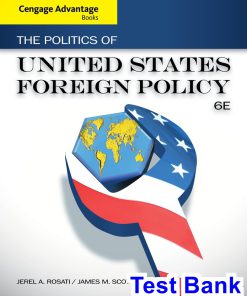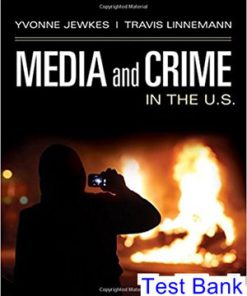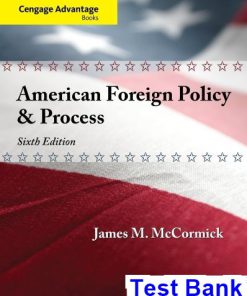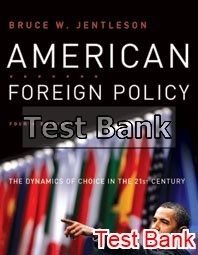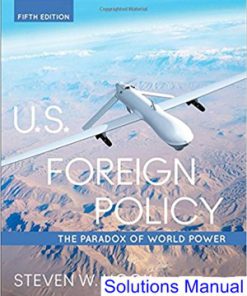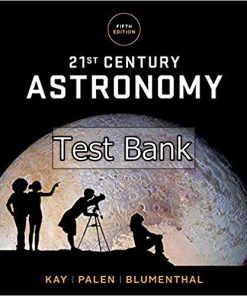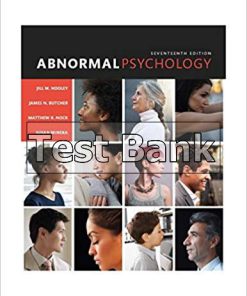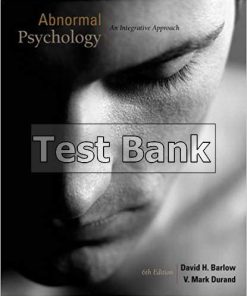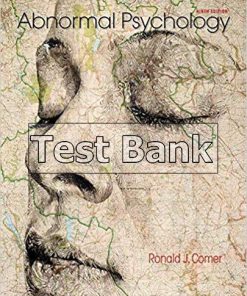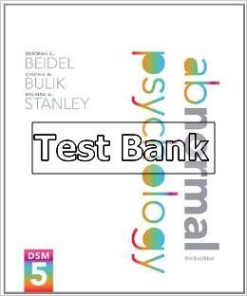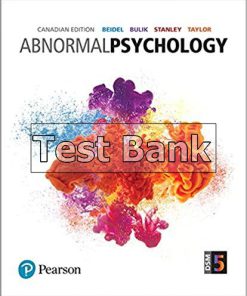U S Foreign Policy The Paradox of World Power 5th Edition Hook Test Bank
$26.50$50.00 (-47%)
U S Foreign Policy The Paradox of World Power 5th Edition Hook Test Bank.
You may also like
Instant download U S Foreign Policy The Paradox of World Power 5th Edition Hook Test Bank pdf docx epub after payment.
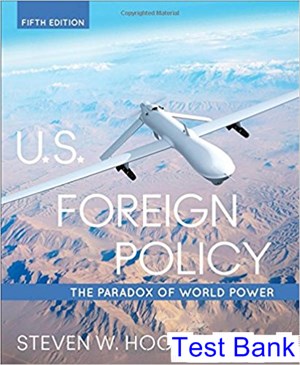
Product details:
- ISBN-10 : 1506321585
- ISBN-13 : 978-1506321585
- Author:
The same aspects of American government and society that propelled the United States to global primacy have also hampered its orderly and successful conduct of foreign policy. This paradox challenges U.S. leaders to overcome threats to America′s world power in the face of fast-moving global developments and political upheavals at home. The fully updated Fifth Edition of Steven W. Hook’s U.S. Foreign Policy: The Paradox of World Power explores this paradox, identifies its key sources and manifestations, and considers its future implications as it asks whether U.S. foreign policymakers can manage these dynamics in a manner that preserves U.S. primacy.
Table of contents:
PART I. The Setting of U.S. Foreign Policy
Chapter 1: The United States in a Turbulent World: World Power Challenges to U.S. Primacy The Paradox of World Power Conclusion
Chapter 2: The Expansion of U.S. Power Economic and Territorial Expansion Fighting Two World Wars Global Primacy and the Cold War New Challenges after the Cold War Conclusion
Chapter 3: Dynamics of Decision Making The Global Context: Rival Perspectives Opening the of Domestic Politics The Impact of Civil Society Coping with Bureaucratic Politics The Human Factor Conclusion
PART II. Inside-Out: Government Sources of Foreign Policy
Chapter 4: Presidential Power The Mixed Blessing Presidential Prerogative in the of Structures of the Judicial Interventions in Foreign Policy Conclusion
Chapter 5: Congress beyond the Trends in Legislative-Executive Relations Constraints on Congressional Action Legislating Foreign Policy War Powers and the Use of Force The Power of the Purse Conclusion
Chapter 6: The Foreign Policy Bureaucracy Agency Dysfunctions and the Paradox of World Power The Diplomatic Complex The Security Complex The Intelligence Complex The Economic Complex Conclusion
PART III. Outside-In: External Sources of Foreign Policy
Chapter 7: Public Opinion at Home and Abroad Democracy and the Paradox of World Power Public Opinion since World War II Group Identities and Foreign Policy Views Conclusion
Chapter 8: The Impact of Mass Communications Functions of the News Media Patterns of Foreign News Coverage Government Efforts to Control the Message The Social Media Revolution Online News and Views from Overseas Conclusion
Chapter 9: Social Movements and Interest Groups Group Action and the Paradox Dynamics of Social Movements Types of Foreign Policy NGOs Group Strategies and Tactics Buying Power: The Corporate Connection Conclusion
PART IV. Policy Domains
Chapter 10: National Security and Defense Policy The Foundation of Strategy Justifying the Use of Force The Nuclear Shadow Waging War on Terror Conclusion
Chapter 11: Economic Statecraft Models of Political Economy The Balance of Economic Power Trade Policy as a National Interests and Foreign Aid Economic Sanctions as a Policy Tool Conclusion
Chapter 12: Transnational Policy Problems Managing the Global Commons The Immigration Debate The Dangers of Weapons Proliferation Promoting Human Rights and Democracy Signs of a More Peaceful World Conclusion
People Also Search:
3 foreign policies
why is the united states a global power
has the u.s. foreign policy been good for the world
u.s. foreign policy the paradox of world power 6th edition
current u.s. foreign policy issues 2023
which u.s. foreign policy is illustrated by this early-twentieth-century cartoon
which u.s. foreign policy term best completes this diagram
an article discussing current u.s. foreign policy
should u.s. foreign policy be isolationist based
basic principles of u.s. foreign policy

